Diagnosis And Treatment Of Juvenile Diabetes And Gestational Diabetes
Juvenile diabetes, or Type 1 diabetes, is typically diagnosed in children and young adults. It occurs when the immune system attacks the insulin-producing cells in the pancreas. The symptoms include excessive thirst, frequent urination, unexplained weight loss, and fatigue. Diagnosis is confirmed through blood tests such as HbA1c and fasting blood glucose tests, which assess average blood sugar levels over time.
Managing juvenile diabetes requires daily insulin injections or an insulin pump to regulate blood sugar levels. Along with insulin therapy, maintaining a healthy diet and engaging in regular physical activity are crucial. Patients need continuous monitoring of blood glucose levels and medical support to adjust their treatment plan as needed.
Gestational diabetes is diagnosed during pregnancy, usually between the 24th and 28th week, through an oral glucose tolerance test. This condition occurs when pregnancy hormones make the body resistant to insulin. Treatment focuses on a healthy diet, regular physical activity, and, in some cases, insulin therapy to keep blood sugar levels stable. Continuous monitoring throughout pregnancy is essential to ensure the health of both the mother and baby.













